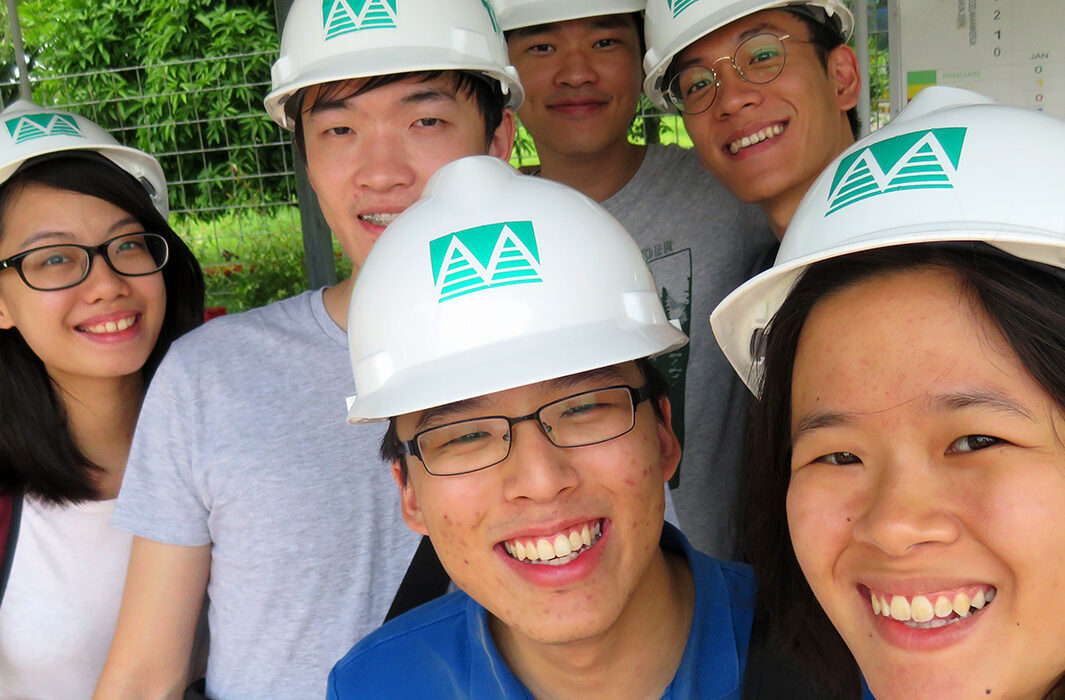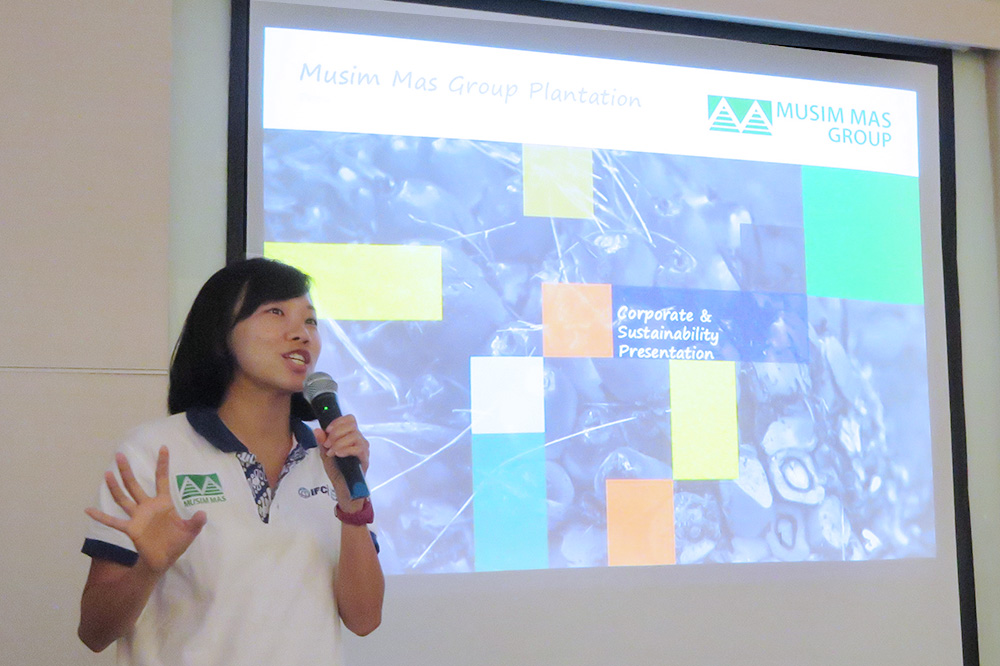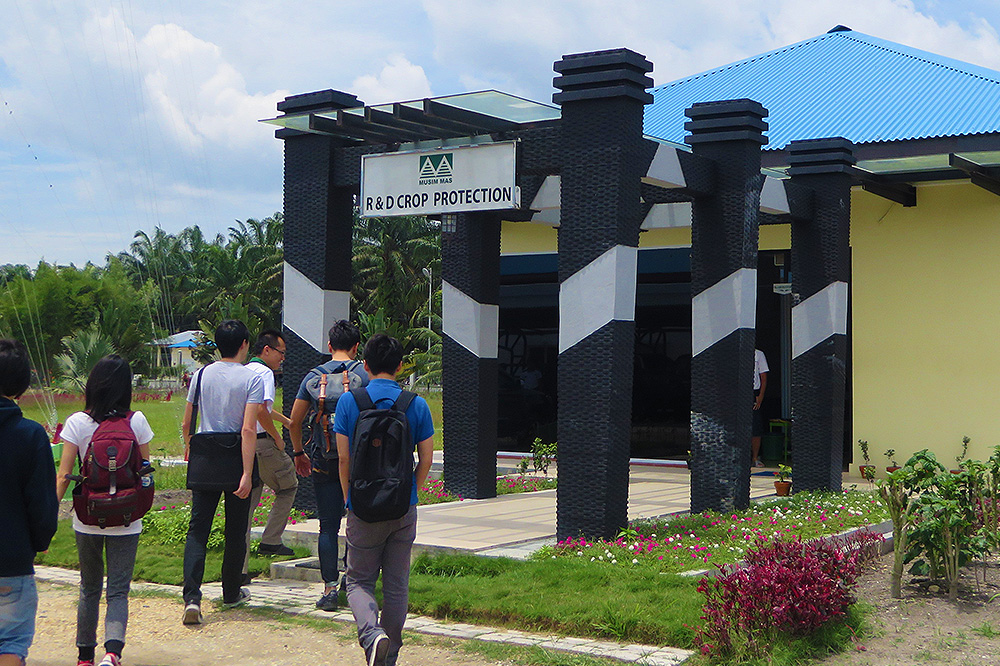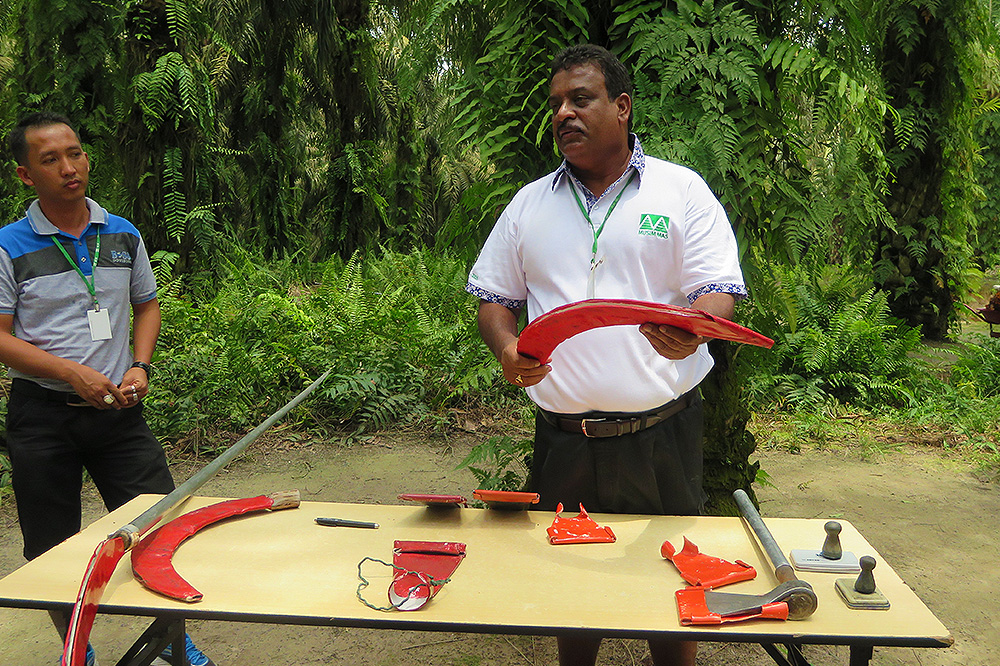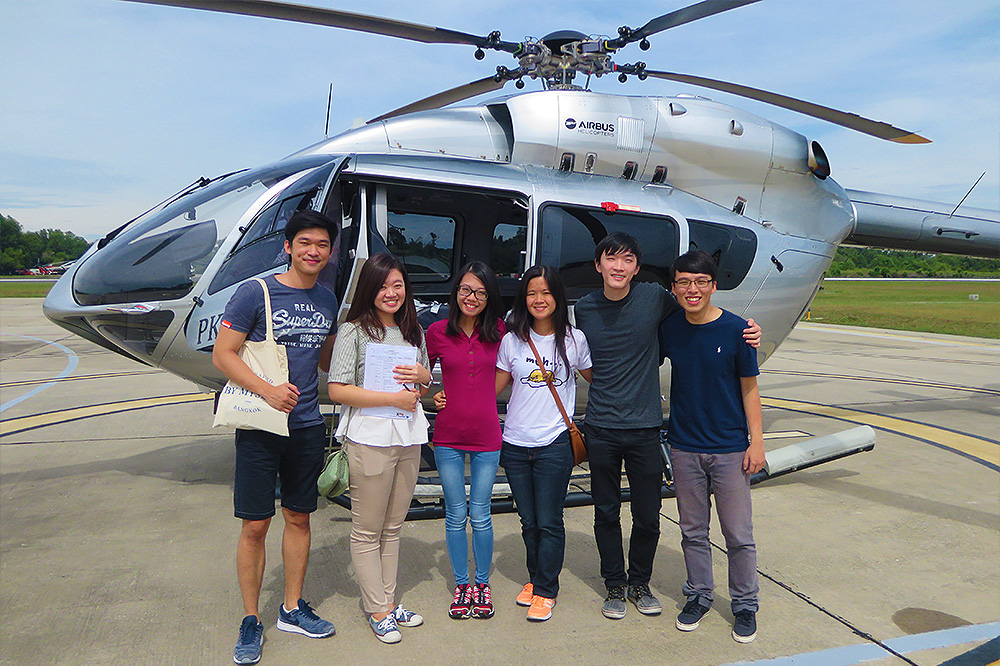A small delegation of 10 undergraduate students from an accounting theory class recently went on an expedition to Pekanbaru, Indonesia to learn more about the environmental and social impact of haze in the region.
Aimed at integrating theory with practice, the trip took a macro-view on environmental accountability and corporate social responsibility. Led by Professor Oliver Li, the students got a chance to blend classroom knowledge with real, business context and learn more about the environmental issue by visiting real business operations in plantations and potential ‘hotspots’.
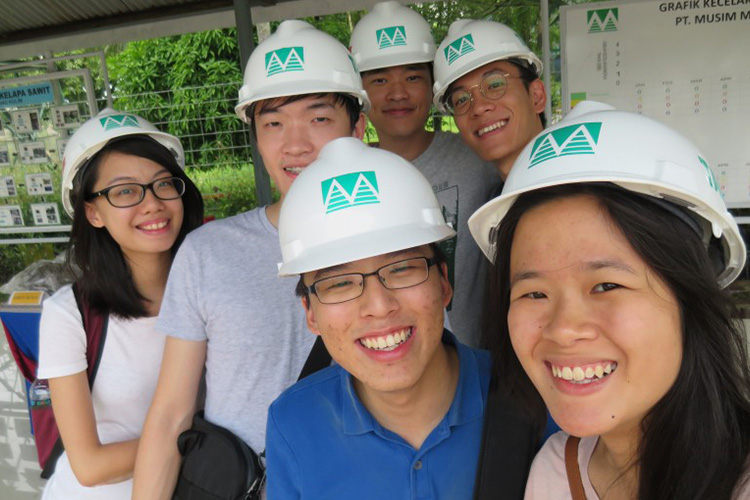
The student team visited Musim Mas Group’s Sorek estate in Pekanbaru.
The Musim Mas Group hosted the team for the visit to their Sorek estate which comprised of an introductory talk at Genetics and Agricultural Research Centre (G&A), and field visits to the Crop protection unit and Genetic Research Centre Field.
By reviewing harvesting activity, integrated pest management, as well as the mill and methane capture facility, the students got a first-hand opportunity to get to see what is being done to address the regional haze issue.
We sat down with Ng Kian Siang, final year accounting student who went on the trip and shared some of the highlights:
Q: What did you expect from the trip and did it meet your expectations?
The main goal of the trip was to learn more about the factors that contribute to air pollution in Indonesia. This topic was of key interest to us as the haze problem from the region is almost an annual affair, except for this year surprisingly. We wanted to obtain an on-the-ground perspective of the issues that oil plantation companies – who are often the ones often accused of being a main contributor to air pollution in the region – face and the measures that they take to mitigate their contribution to the problem. In addition, having a first-hand learning of how palm oil is grown and harvested is also interesting.
The trip definitely shed a lot of light on what oil plantation companies do to mitigate or even eradicate the problem. I realised that a multitude of monitoring and response systems are in place in most of the largest oil plantations in Indonesia to ensure that fires, if started, are dealt with swiftly before they become uncontrollable.
Q: What are some of the highlights of the trip for you?
The overall experience was rather surreal. I never actually expected to get to go on such a trip for an accounting theory module. We managed to observe the actual harvesting of the palm oil fruits which was great. The fruits actually weigh over 20kg per piece and are harvested from trees over 15m tall. The process of harvesting was extremely interesting and Professor Oliver Li had a chance to try harvesting one of the fruits which I think he had a lot of fun participating in. For the first time in my life, I got a chance to do a helicopter ride over the oil plantation fields of Pekanbaru, which was memorable and unique. The bird’s eye view of the plantations allowed us to very clearly see observe the various plots of oil palm plantations. We didn’t manage to see any burning lands at all which was quite surprising which further solidified the view that government crackdown on peatland burning is working.
Q: What are the next steps following the Indonesia trip?
We will be writing a paper on various topics centred on oil palm plantations. We hope these papers would spur more research in this area as there is a distinct lack of regional research on Singapore.



